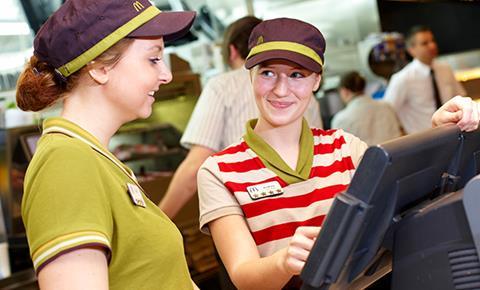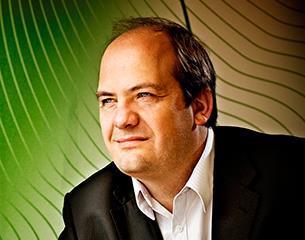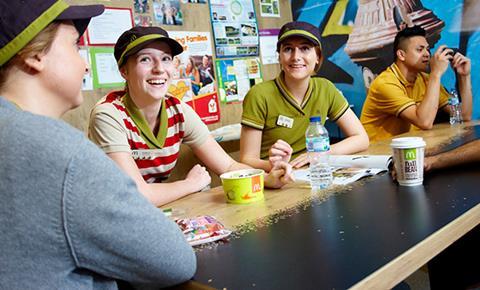
The organisation has boosted performance and productivity by ensuring all of its reward programmes are aligned to its business strategy. The employer was recognised for its approach in 2012, when it won an Employee Benefits Award for best alignment of benefits to the business strategy, and in the years since it has ensured it has never lost this focus.
Neal Blackshire, reward manager at McDonald’s and winner of the Employee Benefits Professional of the Year Award 2014, believes that there is no point having a reward strategy that is at odds with the business. “If the business strategy goes in one direction and reward in another and is not helping, pushing and encouraging it, then it is a waste of time, money and effort,” he says. “We have made sure that reward is never out of alignment. If it was, it would need changing and we have not made significant changes for a good number of years now, but it is more of an evolution process.”
Employee engagement
McDonald’s business transformation was facilitated by focusing staff towards five principles of employee engagement, called the ‘five vital ingredients to great customer experience’, to which its recognition strategy is aligned.
Blackshire explains that the organisation introduced these five key values in 2014 to ensure that it embedded a hospitality culture in its restaurants after identifying that its previous ‘10 commandments’ were out of date.
One project that saw measured improvements for the business was its Road to Rio initiative in 2014, which incentivised the top 5% of restaurants based on customer satisfaction ratings in February, March and April 2014. Employees from these restaurants were entered into a prize draw to win a trip to the World Cup in Brazil.
The competition ran in conjunction with the Fifa World Cup, with McDonald’s using its sponsorship of the competition to its advantage, sending 11 winning members of staff to Brazil. More importantly, it helped to boost the speed of service while also delivering great customer experience.
“The mechanic was simple,” says Blackshire. “At the end of the three-month project, there was recognition in 213 different restaurants, and during the time it was running the total experience time in restaurants improved by 6.1 seconds over the previous year and the customer satisfaction opportunity score decreased to 16.7%, a score you always want to go down and not up. The lower it is the better it is.
“This meant, although a small improvement, we served an extra 24,000 customers every day. This was a marked improvement and it helped create a real buzz in the workplace.”
Motivation is on the menu
Motivation is a key focus within the organisation. McDonald’s also incentivises and supports desired behaviours through two bonus schemes for its 400 company-owned restaurants.
Each month, all employees in the top 10% of restaurants, based on mystery shopper scores, receive a bonus of 50p for each hour they have worked in a two-week period.
In addition, restaurant managers are eligible for a quarterly bonus based on three equally weighted measures: mystery shopper scores, sales growth and profitability.
This bonus strategy is aligned to business objectives and has been key in helping the organisation secure 36 consecutive quarters of comparable sales growth with a 4% sales increase for 2014.
“Everything since 2012 has been an evolution,” says Blackshire. “Engagement scores have improved and other metrics we look at have increased. What we are doing resonates with the business and is working for us and succeeding without the need for big change.
“The sales growth has been achieved by really staying close to the customer, being relevant to needs and looking after our people through the benefits we offer. Our job is to ensure that McDonald’s is best placed for our staff to be motivated and engaged.”
Benefits to support employee engagement
Its benefits structure helps to achieve this. Although the organisation offers a flexible benefits scheme, it does not operate a fixed annual enrolment window. For example, at any time an employee can choose to add or remove a dependent to their healthcare benefits plan.
The organisation allows its employees to choose the benefits that suit them and has a wide-ranging package to suit the needs of the different age ranges it supports. Its voluntary benefits package, provided by Reward Gateway, has been one of its most successful schemes, with employees having spent more than £37m through the site, resulting in savings of £2.15m, since it launched in 2010.
“McDonald’s is such a dynamic working environment for employees. They would not be able to make a decision in a two-week annual window for the rest of the year,” Blackshire says. “We offer benefits on the basis that we have a range that adds value to employees. Of course not all will value these but at different points of their life with McDonald’s we are sure they will. It is not flex in the traditional sense but allows them to pick and choose what they want to make use of.”
This reward structure makes its communications even more important. Total reward statements and its ‘Ourlounge’ employee portal have helped to improve take-up and employees’ understanding of the benefits McDonald’s offers. As a result, employees’ satisfaction with benefits has improved in 2015, with 74% of staff being satisfied with these, which is a score of 23% above the external benchmark.
“[The portal] is essentially the gateway to McDonald’s life,” says Blackshire. “[It is] a one-stop shop for employees to check schedules, payslips and book holiday. The organisation calls it a lifestyle learning website, but we see it as more of an engagement portal. There are certain functional things they can do on there but it has upcoming promotions, news stories, learning and development training and online content for qualifications, and our discounts can only be accessed through here. It has also been key for engaging new staff with their benefits, but also remains a vital tool for all employees including myself and managers.
“The portal and the statements have been key to our communications and making sure our evolution stays in line with what the business is trying to achieve.”
McDonald’s has been shortlisted for ‘Best total reward statements’ and ‘Most motivational benefits’ at the Employee Benefits Awards 2015,
McDonald’s Restaurants at a glance:
McDonald’s Restaurants has around 36,000 restaurants serving approximately 69 million people in more than 100 countries each day.
Some 1.9 million people work for the organisation around the globe. In the UK, it employs more than 100,000 staff, including franchises.
In the UK it has 1,200 restaurants, of which two-thirds are franchised and 400 are company owned. McDonald’s has an age profile of employees under the age of 25, with an equal gender balance.
Business objectives impacting benefits:
- Keeping benefits aligned to the business strategy effectively
- New restaurant conversions and the impact on its people
Career history: Neal Blackshire

Neal Blackshire has worked his way up within McDonald’s Restaurants, having been with the organisation for more than 32 years. Blackshire studied accounting and finance at Kingston University. After starting his career in the organisation’s restaurants, he has been reward manager at McDonald’s since 2000.
In 2014, Blackshire’s peers voted him as the Employee Benefits Professional of the Year at the Employee Benefits Awards. He cites this as one of his proudest career achievements, along with winning one of the McDonald’s recognition awards in 2013 for his work on pensions auto-enrolment.
The benefits offered by McDonald’s Restaurants

Pension:
Defined contribution scheme for all salaried employees. Staff can contribute a minimum of 3% and receive matching employer contributions on a 1:1, 1.5:1 or 2:1 ratio depending on age and length of service, to a maximum employer contribution of 10%. Salaried employees who do not wish to contribute 3% will receive the minimum contribution levels set under auto-enrolment.
The National Employment Savings Trust (Nest) for all auto-enrolled hourly paid employees, with contributions set at the minimum level required under auto-enrolment.
Healthcare and wellbeing:
Private medical insurance for all hourly paid employees after three years’ service and salaried staff after six months’ service
Dental car
Eyecare vouchers.
Dedicated wellbeing section on employee portal, ourlounge.co.uk
Income protection (for salaried members of the pension scheme, excluding those auto-enrolled)
Personal accident insurance.
Life assurance
Staff travel:
Company cars: available for restaurant managers and staff of equivalent grades, as well as employees in senior positions
Family-friendly benefits:
Enhanced maternity and paternity policies for salaried employees
Childcare vouchers via salary sacrifice arrangement
Flexible-working patterns
Job sharing
Paid eight-week sabbatical after 10 years’ service for salaried employees
Recognition schemes:
Employee of the month for each restaurant
Employee of the quarter for each restaurant
Employee of the year (national winner)
Ray Kroc award for the best restaurant managers
Holiday award for non-restaurant staff
President’s award for non-restaurant staff
Service awards for all employees at five-year intervals from five to 30 years of service
Restaurant of the year
Consultant of the year
Incentive pay/performance-related pay:
Three bonus schemes:
A monthly scheme for hourly paid employees
A quarterly scheme for the restaurant management teams
An annual scheme for office support departments.
Holiday:
28 days including public holidays for hourly paid employees
30 days including public holidays for salaried employees
Other:
All employees receive free meals while at work
Employee discounts scheme
Interest-free emergency loans for salaried employees











